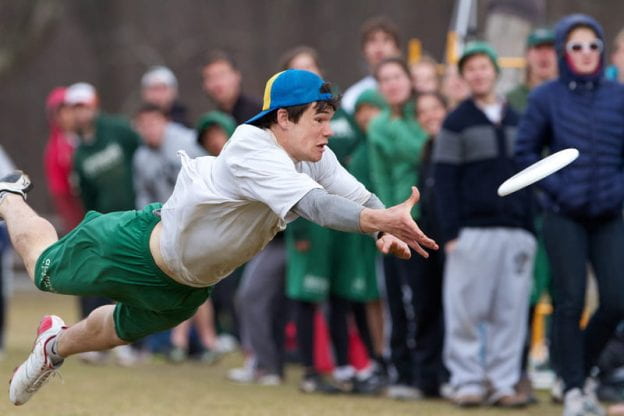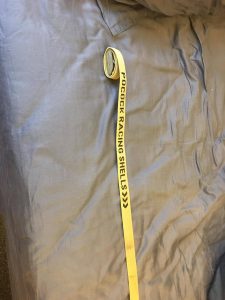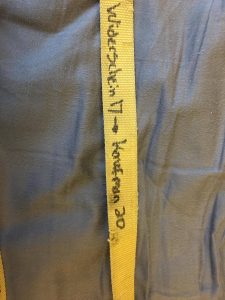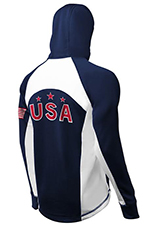GENERAL INFORMATION ABOUT THE ITEM:
- Customary Folklore – Tradition
- Language: English
- Country of origin: United States
- Informant: Alec Miller
- Date Collected: 11/10/19
INFORMANT DATA:
- Alec Miller is an active member of Dartmouth Men’s Ultimate Frisbee Team, known by its name, Pain Train and has been a Dartmouth Ultimate Frisbee community member for three years. He is a member of the class of 2021 and is a Government major. He started playing frisbee in high school, but improved significantly in college. Born on May 10, 1999, he is from Philadelphia, PA. His favorite frisbee throwing technique is the low release backhand.
CONTEXTUAL DATA:
- Cultural Context: Bequests, or bequesting, is the act of passing down treasured items from one team member to a younger member. Bequests occur at Banquet each year. Banquet marks the official end to the year as a frisbee program, and all of the seniors who have been bequested items over the years now have to bequest them down so that they stay within the frisbee program. There are some items that have been in the program for many, many years: since the 1990s and earlier. Bequested items can consist of a number of things, including non-physical items, such as the title of “SPEW OVERLORD”, and physical items, most commonly flair. Each item is passed down and has each previous owner’s name and year associated with it, usually written on the item itself; this forms a sort of lineage of people that the item has been passed down from.
- Social Context: This ritual was documented in a one-on-one interview in Novack. Bequests are given to individuals in the program that have developed a relationship with the bequester over their time at Dartmouth and within the Ultimate Frisbee Community. Items are usually bequested after the bequester has said a few (or a lot of) words in front of a group about what the item or previous owner has meant to them and what the recipient of the bequest means to them or why they feel the recipient should be the new owner. This fosters a sense of community within the program.
ITEM:
- Bequests
Recording:
TRANSCRIPT:
- “Bequests are pretty much – some important, some not as important – but it’s all the stuff that’s been part of the frisbee program from the past couple of years and some for a very long time. So at the end of the year we have a program banquet where the teams get together in a cabin or somewhere where we’re all together and that is when bequests are handed down. There are multiple rounds. The first round is giving away most of their stuff but its stuff that doesn’t have much personal meaning to them.t could be random flair and stuff like that. Then there is, in between that round and the last round it’s called side bequests. That’s pretty much when someone wants to give something to someone but it’s usually more personal stuff that they just wanted to have a moment with the person to hand something down and don’t really feel the need to publicize it to the program. This stuff is usually not as related to the frisbee program but it’s more of a personal gift from the person. And then the last round is the more personal stuff, I guess you could call it the more important stuff to the frisbee program which gets handed down. The last round is definitely more emotional than the first one because it’s just like people giving up stuff that is very important to them to people who are important to them. And, in the first round it’s people giving away a lot of their stuff that they don’t really have a connection to whereas in the last one its people giving away four or five things that they care a lot about and talking about the importance of the item has to them and the importance the person has to them and why they’re giving it to them.”
INFORMANT’S COMMENTS:
- “Banquet is the most important event of the year outside of playing”
COLLECTOR’S COMMENTS:
- Bequests are some of the most cherished items many Dartmouth students own and are kind of sacred. Bequested items never to be lost and should be preserved as best as possible. New items can become part of a bequest chain if they have enough significance to a single team member or the whole team itself, or if an item is particularly unique or one of a kind.
COLLECTOR’S NAME:
- Luke Cuomo and Annett Gawerc





